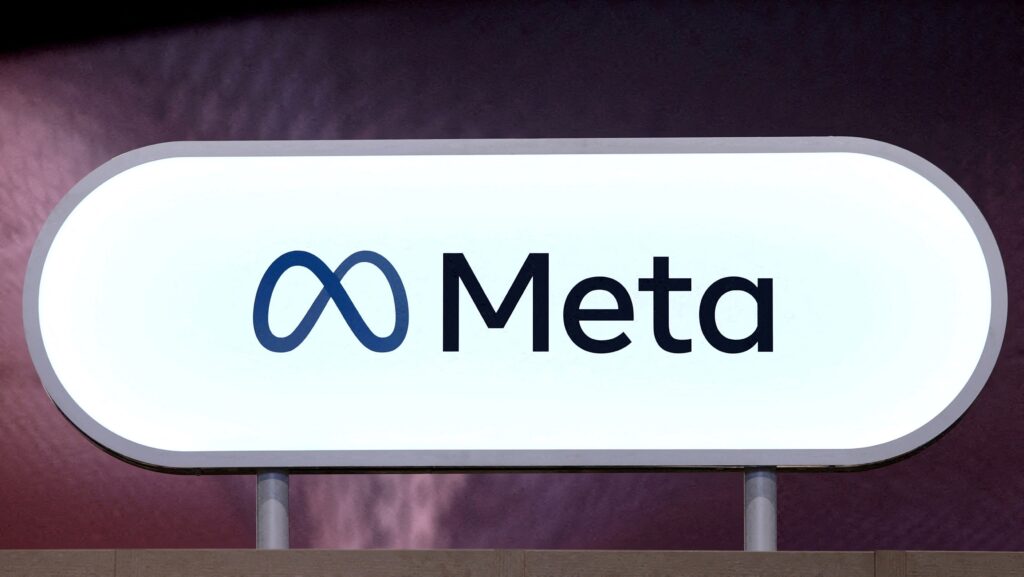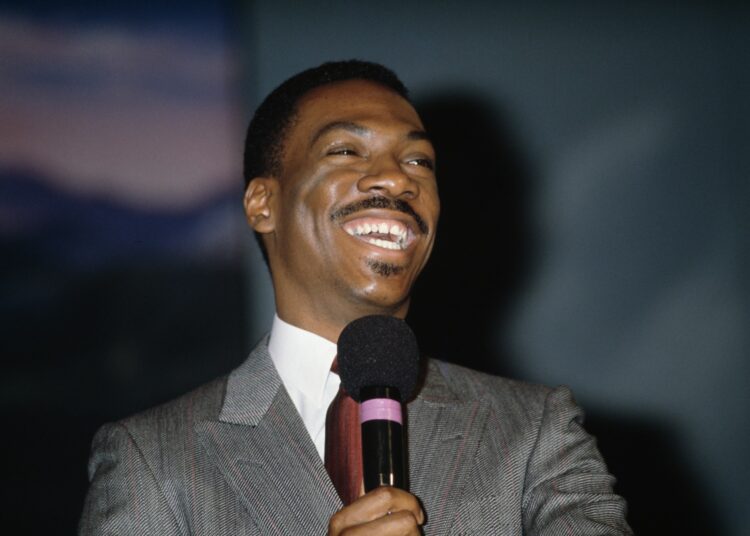A federal judge has rejected the Federal Trade Commission’s effort to force Meta to divest its acquisitions of Instagram and WhatsApp, saying the government hadn’t made its case that the Facebook owner is an illegal monopoly.
In his ruling Tuesday, U.S. District Judge James E. Boasberg in D.C. agreed with Meta that its purchases of the photo-sharing app Instagram and messaging app WhatsApp, which it bought in 2012 and 2014, respectively, did not violate antitrust laws. Boasberg found that the social media company isn’t a monopoly and faces a broad internet ecosystem of competitors rather than the far narrower one the government defined.
The FTC argued that Meta held a monopoly in the “personal social networking” market and identified the ephemeral messaging app Snapchat as its next-biggest competitor. Using its market dominance, the FTC alleged, the company sought to buy or crush would-be competitors while depriving users of more vibrant social media options. Meta argued it competes against a broader set of other platforms including TikTok, YouTube and X.
Boasberg wrote that the FTC had “an uphill battle to establish the contours” of a market in which Meta had a monopoly. “The Court ultimately concludes that the agency has not carried its burden,” he wrote.
“With apps surging and receding, chasing one craze and moving on from others, and adding new features with each passing year, the FTC has understandably struggled to fix the boundaries of Meta’s product market,” he wrote. “Even so, it continues to insist that Meta competes with the same old rivals it has for the last decade, that the company holds a monopoly among that small set, and that it maintained that monopoly through anticompetitive acquisitions.”
Boasberg’s order is a victory for Meta, which has relied on Instagram and WhatsApp to bolster its reach among advertisers, younger audiences and users abroad. More than a decade later, those acquisitions have become crucial to the company’s AI strategy as it integrates its conversational chatbot across all of its social networks.
The high-profile trial elicited testimony from top executives including Meta CEO Mark Zuckerberg, former chief operating officer Sheryl Sandberg and Instagram head Adam Mosseri, who were often confronted with internal correspondence from a decade ago about how the company approached competitive threats.
The ruling is a setback for a chorus of activists and regulators in the Trump and Biden administrations who have supported more aggressive antitrust enforcement against big technology companies, arguing that the traditional competition laws have not kept pace with the modern era. The new competition movement — which its detractors in the tech industry and elsewhere have derided as “hipster antitrust” — argues that antitrust laws apply to future competition, not just the current market, and that harm to consumers can be defined by factors other than price.
“The court’s decision today recognizes that Meta faces fierce competition,” Meta spokesperson Andy Stone said in a statement. “We look forward to continuing to partner with the Administration and to invest in America.”
Matt Schruers, president of the tech trade group Computer & Communications Industry Association, praised Boasberg’s ruling as accurately reflecting the market.
“This ruling recognizes the competitive and highly dynamic nature of digital markets,” Schruers said in a statement. “It concludes what every Internet user knows — that Meta competes with a number of platforms and the company’s relevant market shares are therefore nowhere close to those required to establish monopoly power.”
The FTC’s director of public affairs, Joe Simonson, said in a statement the agency was “deeply disappointed in this decision” and would be reviewing its options. “The deck was always stacked against us with Judge Boasberg, who is currently facing articles of impeachment,” he added, an apparent reference to GOP efforts to impeach the judge for rulings he has taken against Trump administration policies and supporters.
Alvaro Bedoya, a former FTC commissioner, wrote in a post on X on Tuesday that the ruling demonstrates the need for Congress to rein in Meta’s power.
“This lawsuit would have checked Meta’s grip on social networking. It would have pried the company apart and likely forced its apps to compete against each other — and perhaps treat their users like people and not eyeballs to be monetized at all costs,” he wrote. “Congress has countless tools to check Meta’s power. It’s time to use them.”
Just before the trial started in April, Zuckerberg traveled to the White House to lobby the administration to get the FTC to resolve the lawsuit, The Washington Post and other outlets previously reported.
The FTC and the Justice Department have failed to secure a major victory in a number of cases against the biggest tech companies in recent years, though judgments remain outstanding in several of them. In early September, a federal judge ordered Google to halt its multibillion-dollar exclusivity contracts with device manufacturers to promote its search engine but rejected the Justice Department’s request to break up the company. In 2023, the FTC lost its effort to block Meta from buying a virtual reality app developer, Within, best known for a buzzy fitness app called Supernatural.
The Justice Department has also filed a monopoly lawsuit against Apple, and the FTC has challenged allegedly anticompetitive behavior at Amazon. Those cases are ongoing.
In his opinion, Boasberg argued that the social media landscape had shifted dramatically since “The Facebook” was first created in 2004 as a site to connect Harvard students. Earlier versions of Facebook and Instagram were primarily used to see posts from friends and family. Now, users are more likely to spend their time on Facebook and Instagram consuming content from influencers they aren’t connected with and communicating with their personal contacts in private messages.
“The Facebook and Instagram that exist today bear little resemblance to the versions that readers might remember from the 2010s,” he wrote. “A majority of Americans’ time on Facebook is now spent watching videos. … Same for their time on Instagram.”
During trial, Meta sought to undercut the FTC’s argument that it controls a social media monopoly by pointing to it being compelled to introduce its short-form video product, known as Reels, amid TikTok’s growing popularity. At one point under questioning from a Meta attorney, Zuckerberg said that in some ways the company lags behind TikTok in the current social media landscape.
“And I don’t like it when our competitors do better than us,” he said.
Boasberg agreed with Meta that the social media giant also competes with YouTube and TikTok, preventing the company from being considered an illegal monopoly.
The FTC first sued Meta, then called Facebook, over its mobile app acquisitions in 2020 during the first Trump administration. The FTC argued that Meta bought Instagram and WhatsApp because the company was concerned about the popularity of competing messaging apps at a time when Facebook was struggling to adjust to the mobile age — claims the agency bolstered with internal correspondence from top executives.
Boasberg dismissed that lawsuit in June 2021, ruling that the government had failed to show enough evidence to prove that Facebook held a monopoly over the “personal social networking” market.
The FTC refiled its suit in August 2021, and this time Boasberg allowed it to move forward, finding that the government had offered “more robust and detailed” evidence that Meta dominates a well-defined niche in the social media market.
In November of last year, Boasberg denied Meta’s motion for summary judgment, saying that the parties’ arguments so far leave “no clear victor” and that the case “must go to trial.” He indicated that his decision might ultimately hinge on how to define the market Meta competes in and whether the company can show that its acquisitions of Instagram and WhatsApp have meaningfully benefited consumers, even if they were motivated in part by a desire to squelch would-be rivals.
During the trial, FTC lawyers relied on a novel argument to demonstrate how the acquisitions allegedly harmed consumers.
Instead of evaluating whether prices had gone up, as the government has typically done in antitrust cases, the FTC legal team pointed to an increase in advertisements on social media and consumers’ continued use of Facebook even when their satisfaction declined following the Cambridge Analytica scandal, when a political consulting firm improperly obtained the personal information of millions of users.
Boasberg argued in his opinion that the evidence showed that Meta had continued to add new features and products to its social media apps and that even the quality of advertisements had improved enough not to push scores of users away.
“In the end, the Court finds it impossible to believe that consumers would prefer the versions of Instagram and Facebook that existed a decade ago to the versions that exist today,” he wrote.
The post Facebook owner Meta is not an illegal monopoly, judge rules
appeared first on Washington Post.




